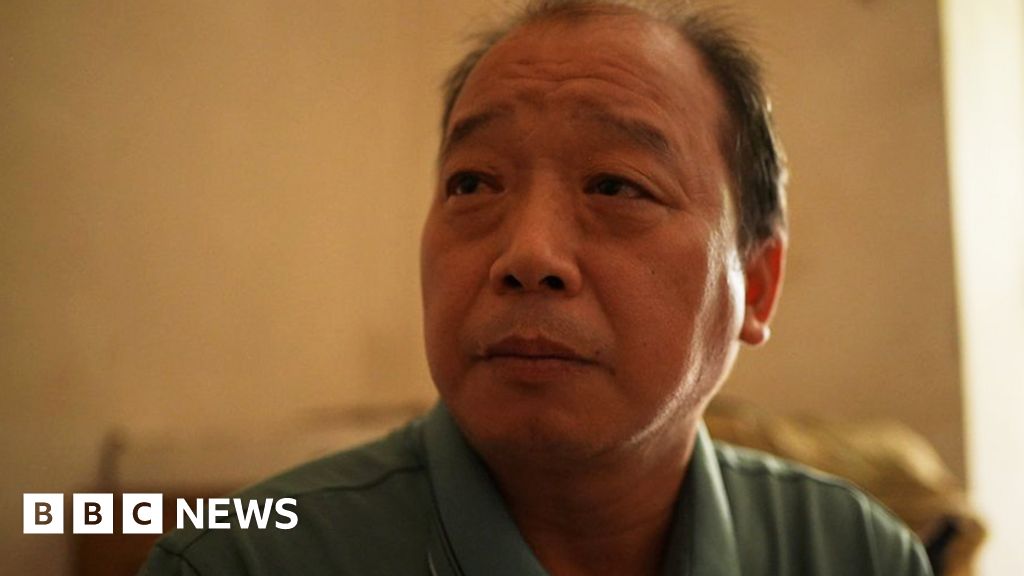Ren Wenbing is reluctant to leave the hollowed-out brick shell which was once a thriving factory in China’s manufacturing hub of Dongguan.
“All the workers feel astonished,” says the 54-year-old as he points out where he once assembled furniture and where everyone would gather to eat lunch.
The owner of the company has moved production to South East Asia to cut costs. Mr Ren says he is owed more than 80,000 RMB ($11,000; £8,800) in redundancy pay, which could take him years to earn.
The owner of the company has moved production to South East Asia to cut costs. Mr Ren says he is owed more than 80,000 RMB ($11,000; £8,800) in redundancy pay, which could take him years to earn.
Mr Ren is not just mourning the loss of a furniture firm. He grieves for the passing of China’s once unstoppable economy, which is making it harder for millions of workers to find a job.
For people like him, not enough is now made in China.
But the West has been accusing China of making far too much – it was the dominant message during US Treasury Secretary Janet Yellen’s recent visit. She chided Beijing for “unfair economic practices,” for producing more than it needs or the world could afford to absorb.
The “Made in China” brand that is etched, sewn or branded on t-shirts, tables and TVs in so many homes around the world is changing. It is now at the heart of the electric cars that are pouring into Germany, and the solar panels that are powering Europe’s renewable policies. And that is worrying the West.
Ren Wenbing is reluctant to leave the hollowed-out brick shell which was once a thriving factory in China’s manufacturing hub of Dongguan.
The owner of the company has moved production to South East Asia to cut costs. Mr Ren says he is owed more than 80,000 RMB ($11,000; £8,800) in redundancy pay, which could take him years to earn.
“All the workers feel astonished,” says the 54-year-old as he points out where he once assembled furniture and where everyone would gather to eat lunch.
Mr Ren is not just mourning the loss of a furniture firm. He grieves for the passing of China’s once unstoppable economy, which is making it harder for millions of workers to find a job.
The owner of the company has moved production to South East Asia to cut costs. Mr Ren says he is owed more than 80,000 RMB ($11,000; £8,800) in redundancy pay, which could take him years to earn.
The owner of the company has moved production to South East Asia to cut costs. Mr Ren says he is owed more than 80,000 RMB ($11,000; £8,800) in redundancy pay, which could take him years to earn.
Mr Ren is not just mourning the loss of a furniture firm. He grieves for the passing of China’s once unstoppable economy, which is making it harder for millions of workers to find a job.
For people like him, not enough is now made in China.
But the West has been accusing China of making far too much – it was the dominant message during US Treasury Secretary Janet Yellen’s recent visit. She chided Beijing for “unfair economic practices,” for producing more than it needs or the world could afford to absorb.
The “Made in China” brand that is etched, sewn or branded on t-shirts, tables and TVs in so many homes around the world is changing. It is now at the heart of the electric cars that are pouring into Germany, and the solar panels that are powering Europe’s renewable policies. And that is worrying the West.
#West #China #workers #disagree
Note:- (Not all news on the site expresses the point of view of the site, but we transmit this news automatically and translate it through programmatic technology on the site and not from a human editor. The content is auto-generated from a syndicated feed.))



